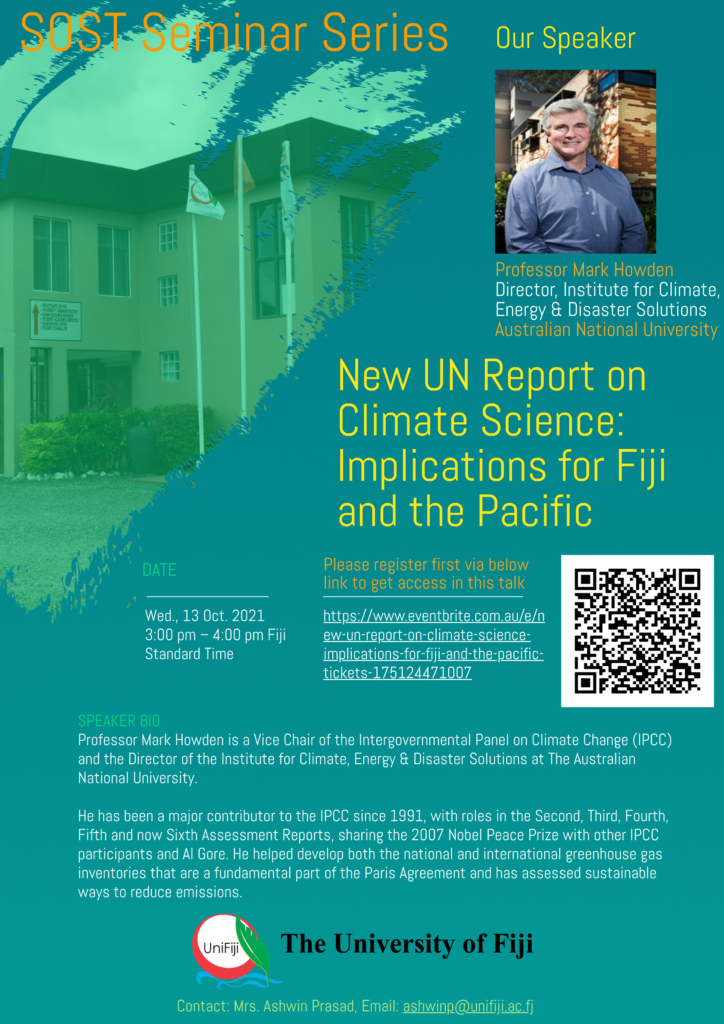The Intergovernmental Panel on Climate Change (IPCC) has finalized the first part of the Sixth Assessment Report, Climate Change 2021: The Physical Science Basis. The Working Group I contribution to the Sixth Assessment Report is the latest physical understanding of the climate system and climate change, bringing together recent advances in climate science, and global and regional climate simulations. This report explained the physical basis of the science, stating that climate change is undeniably caused by humans and that humans will have to act quickly to combat its most disastrous outcomes.
The report indicates that the world may warm by 1.5°C by the early 2030s, much earlier than previously estimated. It is indeed a very bad and sad news for the Pacific. With temperatures going above 1.5°C, Pacific island communities are likely to experience increasingly adverse impacts of climate change. Especially vulnerable are our low lying atoll islands.
This latest assessment from the IPCC is a strong tool that negotiators can use to extract more ambitious commitments from the upcoming COP26 this November in Glasgow, Scotland. The intense warnings of the sixth IPCC assessment report, calls for an equally intense policy suggestion. We are looking forward to a robust and fruitful discussions and negotiations at COP 26, one that considers the plight of our small island nations that are at the forefront of climate change.
With these words – I would now like to introduce our highly esteemed speaker for today, Professor Mark Howden. Professor Mark Howden is a Vice Chair of the Intergovernmental Panel on Climate Change (IPCC) and the Director of the Institute for Climate, Energy & Disaster Solutions at The Australian National University.
He has been a major contributor to the IPCC since 1991, with roles in the Second, Third, Fourth, Fifth and now Sixth Assessment Reports, sharing the 2007 Nobel Peace Prize with other IPCC participants and Al Gore. He helped develop both the national and international greenhouse gas inventories that are a fundamental part of the Paris Agreement and has assessed sustainable ways to reduce emissions.
Prof. Howden has worked on climate variability, climate change, innovation and adoption issues for over 30 years in partnership with many industry, community and policy groups via both research and science-policy roles. Issues he has addressed include agriculture and food security, the natural resource base, ecosystems and biodiversity, energy, water and urban systems.
We are indeed very pleased to have him as the speaker for today’s webinar.
453 total views, 1 views today

